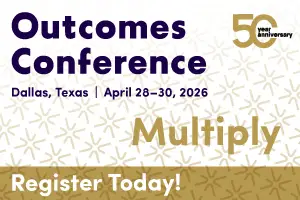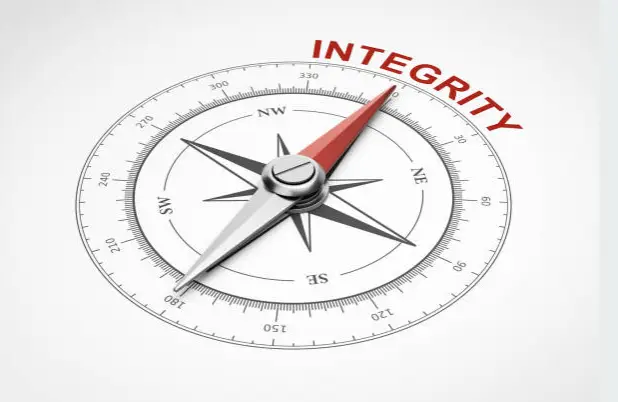Generational Diverisity By Arthur L. Satterwhite III
Back to Blog
 Tapping the Hidden Power of Generational Diversity
Tapping the Hidden Power of Generational Diversity
At The Outcomes Conference 2018 this week, Arthur Satterwhite III and Dr. Kathleen Patterson, Director of the Doctorate of Strategic Leadership Program at Regent University, are teaching a workshop called, #InnovateorDie. They are covering the current leadership issues that are challenging norms and strategies, making the usual ineffective and the unusual effective. They are sharing what it means to innovate everything, e.g. communication, leadership, even diversity.
In this excerpt from the Spring 2018 edition of Outcomes Magazine, you capture the innovative thinking of Arthur Sattewhite III.
If you were to ask a leader today what their top five issues are in either their workplace or faith-space, chances are millennials would be somewhere on the list. To read much of the writing about this generation, one might conclude that they are one of the single-most disruptive forces ever to enter these environments.
I would argue that this angst merely is par for the course. If anything, this generational tension is cyclical. However, what if millennials are not the issue? In fact, what if we are asking the wrong question altogether?
I would suggest: “How do we learn to worship and work together in ways that lead to flourishing despite our age?” Leadership is at least part of the answer to this question.
Specifically, I believe that “Intergenerational Leadership” is the key to flourishing in our contemporary context. It is leadership that requires emotional intelligence that leverages self-awareness and empathy to cross cultural divides between different age cohorts. It is leadership that demands generational intelligence that enables one to understand and navigate the distinct generational contexts of people groups. Most importantly, it is leadership that equates leaders to servants tasked with stewarding, shepherding, and supporting those entrusted to their care.
Biblically, it is the model of leadership that prompted Jesus to wash the feet of disciples and inspired the Apostle Paul to encourage Timothy not to let others dismiss him because of his age. It is humble-minded leadership that sees beyond the station, age, or location of people while striving to nurture and release the God-given talents of those whom one is called to serve.
So how do we do this? How does one become an intergenerational leader and tap the hidden power of generational diversity?
It starts with understanding that we cannot lead those whom we do not know, and we cannot be led by those whom we do not understand. Additionally, here are five practical tips to develop your capacity as an intergenerational leader:
- Seek out shared experiences: Shared experiences with others who are different enable us to see and appreciate the value and possibility they bring to the table.
- Pursue courageous conversations: Conversations become courageous when we learn to lean into the tension and make ourselves vulnerable enough to ask instead of assuming what others think or believe.
- Cultivate gracious spaces: These are spaces that give room for us and others to make mistakes, to say the wrong thing, but also receive the grace needed to continue to grow and work together.
- Demonstrate compassionate empathy: This is empathy that not only helps us to understand others, but that also provokes us to respond to their needs and serve them.
- Convey emancipatory hope: We become conveyors of liberating hope when we embrace our agency in stewarding God’s call to be agents of flourishing in his kingdom.
Unfortunately, the reality is that the conversation around diversity often starts with ethnic diversity and ends with gender diversity. Regardless, in her book Disunity in Christ (IVP Books, 2013) Dr. Christena Cleveland suggested, “If we can uncover the dynamics that divide us (whether generational, ethnic, political, theological or cultural), we can begin to devise a plan for beating them.” As such, learning to lead in ways that leverage the power of the generational diversity of our communities is the key to overcoming generational tensions in our faith and work environments. In doing so, intergenerational leaders will find that the fruit born from their faithfulness will be the flourishing of generationally diverse faith and workspaces.
####
Arthur L. Satterwhite III is the founder and principal of Satterwhite & Co., LLC, a management consulting firm that works to help its clients overcome personal and organizational issues around leadership and generational diversity. For more information on his work, find him on LinkedIn or visit his website.
####
Be sure to follow the conversation at The Outcomes Conference 2018 on social media this week!
Join the conversation- #Outcomes18
Christian Leadership Alliance – A place where a leader like you belongs.
LEARN MORE
And a Special THANKS to our 2018 CLA Higher Thinking Blog Sponsor BIOLA University!
Featured Articles
CLA Membership
Join Christian
Leadership Alliance
A commitment to membership unlocks a more comprehensive access to content, community, and experiential learning. Here are the three membership exclusives that exist to significantly accelerate your professional growth and personal development.











